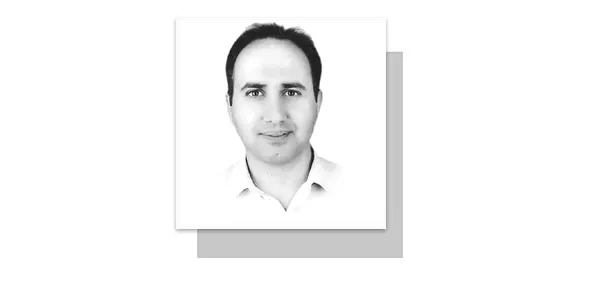EDUCATION is not merely the transfer of knowledge; it is the awakening of a soul, the quiet revolution that transforms individuals into thinkers, societies into civilizations and nations into legacies.
It is the invisible thread that weaves character, purpose and progress into the fabric of a people.
Without it, a nation walks in shadow, its potential muted, its destiny delayed.
The annals of history bear witness: every renaissance was born from a revival of learning, every golden age preceded by the nurturing of minds.
Yet in Pakistan, a land of ancient wisdom and youthful promise, education remains a neglected promise undermined by systemic decay, socio-economic barriers and a failure to imagine beyond the obsolete.
Millions of children are denied not just the right to read and write, but the right to dream, to question, to build.
Until education is treated not as a privilege but as the foundation of our national philosophy, Pakistan will remain a nation striving for greatness with its eyes half-closed.
In an era where education fuels national progress and innovation, countries that once lagged behind have surged ahead by placing education at the heart of their development strategies.
Unfortunately, Pakistan remains trapped in a cycle of educational decline.
According to the United Nations Development Programme (UNDP), Pakistan allocates a mere 1.7% of its GDP to education, one of the lowest figures globally and far below the recommended 4-6%.
This chronic underinvestment has led to crumbling school infrastructure, an acute shortage of qualified teachers and alarmingly high dropout rates.
UNICEF estimates that 22.8 million children in Pakistan are currently out of school, the second-highest number in the world.
Girls, particularly in rural areas, are disproportionately affected, facing barriers rooted in poverty, cultural norms and a severe lack of female educators.
If immediate and comprehensive reforms are not undertaken, Pakistan risks falling further behind in a world that is advancing at an unprecedented pace.
Beyond accessibility, the quality of education in Pakistan is deeply concerning.
The obsolete curriculum fails to equip students with the skills needed for the modern world.
While developed nations embrace artificial intelligence, robotics and data science, Pakistan’s system remains rooted in rote memorization, discouraging creativity, critical thinking and problem-solving skills essential in today’s knowledge-driven economy.
As a result, graduates are often ill-prepared for competitive job markets and struggle to meet evolving industry demands.
Poor governance further deepens the crisis.
Corruption, nepotism and political interference divert resources meant for improving infrastructure and teacher training.
Teacher recruitment often lacks transparency, leading to the hiring of under-qualified individuals, while widespread mismanagement allows phenomena like ghost schools, institutions existing only on paper, to thrive.
Additionally, the education system fails to promote social cohesion or responsible citizenship.
The curriculum often presents a narrow, biased view of history and neglects critical subjects like civic education, human rights and environmental awareness.
In a world where inclusivity, tolerance and global understanding are increasingly vital, Pakistan’s education model lags behind, reinforcing outdated narratives rather than cultivating a progressive, harmonious society.
A comparative analysis with countries that have successfully overhauled their education systems shows that Pakistan’s challenges are not insurmountable.
China, through decades of consistent investment, transformed itself into a global economic powerhouse.
South Korea, once devastated by war, prioritized education and is now a leader in technology and innovation.
Finland revolutionized its education system by focusing on critical thinking, creativity and student well-being, consistently ranking among the best globally.
Singapore, too, evolved from a struggling economy into one of the world’s most prosperous nations through its relentless commitment to education and skills development.
Even Bangladesh, once part of Pakistan, has made significant strides in improving literacy rates and achieving gender parity in education.
These success stories highlight a clear truth: nations that prioritize education cultivate prosperity, innovation and social harmony.
Pakistan must urgently reassess its priorities, recognizing that an uneducated population will only perpetuate stagnation, inequality and social unrest.
Real and lasting change in Pakistan’s education system is difficult, but entirely within reach.
Reform must begin with increasing the education budget to at least 4% of GDP, ensuring adequate resources for infrastructure, teacher training and modern curriculum development.
Teachers must be recruited on merit, professionally trained and properly compensated, as they are the foundation of quality education.
Integrating digital learning and encouraging critical thinking and problem-solving skills are essential for preparing students for a rapidly changing world.
Strategic partnerships between government and the private sector can also help address gaps and accelerate progress.
Promoting gender equality in education is not just a moral imperative, it is a vital necessity.
Targeted initiatives such as stipends for girls, secure transportation and the recruitment of more female teachers can be transformative, especially in rural and underserved regions.
Regional disparities must be erased through just and balanced investment and systemic governance reforms are urgently required to root out corruption and ensure that every rupee serves its intended purpose.
In an age defined by rapid technological shifts and global competition, complacency is no longer an option.
If we are to rise, education must no longer be treated as a peripheral concern, it must be recognized as a matter of national survival, of sovereignty and of self-respect.
For it is in the quiet power of a classroom, in the minds of our children, that the future of Pakistan truly begins.
—The writer is PhD in Political Science, and visiting faculty at QAU Islamabad. (zafarkhansafdar@yahoo.com)


















